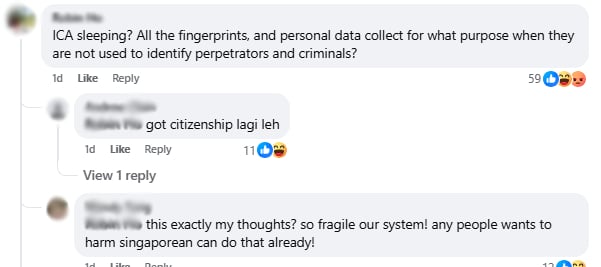SINGAPORE: A Pakistani man who was permanently barred from Singapore in 1998 has pleaded guilty to multiple immigration offences after re-entering the country a year later under a false identity.
Muhammad Salman, 45, managed to build a life in Singapore, securing marriage, family, permanent residency, and eventually citizenship.
His deception went undetected for almost 20 years before surfacing, leading to criminal charges, The Straits Times reported.
On 17 September, Salman admitted in court to re-entering Singapore while banned, entering without a valid pass, and making false statements to obtain both permanent residency and citizenship.
He appeared via video link, having been held on remand since 18 February.
Deputy Public Prosecutor (DPP) Zhou Yihong told the court that Salman, then known as Malik Irfan Arshad, was convicted in 1998 of cheating and giving false information to a public servant.
He served more than two months in prison before being permanently barred from returning to Singapore.
Despite the ban, Salman re-entered the country on 19 November 1999 under a new identity.
He later made false declarations when applying for permanent residency in December 2002 and for citizenship in August 2007, with both applications approved.
DPP Zhou argued that these repeated misrepresentations showed a pattern of deceit, stressing that the offences were not historical but “continuing”, as Salman had enjoyed the privileges of citizenship for nearly two decades.
In mitigation, Salman’s lawyer, Teo Choo Kee, said his client was remorseful and had acted out of desperation in his youth.
He told the court that Salman had sought a better future in Singapore but had used the wrong means. After re-entering, Salman married and started a family, which left him feeling compelled to sustain the deception.
Teo emphasised that his client’s last offence was in 2007 and that he had not re-offended since.
The prosecution rejected these arguments, saying Salman had shown no hesitation in lying to the authorities on multiple occasions. DPP Zhou described his conduct as “blatant”.
Salman is scheduled to return to court for sentencing on 2 October.
Under Singapore law, making false statements to obtain citizenship carries up to two years’ imprisonment, a fine of up to S$1,000, or both.
False declarations to secure entry or re-entry permits may lead to a jail term of up to 12 months, a fine of up to S$4,000, or both.
Entering Singapore despite a ban carries between two and four years’ imprisonment and fines of up to S$6,000, while entering without a valid pass may result in up to six months in prison and at least three strokes of the cane.
Netizens Question ICA’s System
The case has sparked debate online, on social media platforms such as The Online Citizen, Mothership, and The Straits Times Facebook pages, with many netizens questioning how Singapore’s Immigration and Checkpoints Authority (ICA) failed to detect Salman’s deception for nearly two decades.
One user asked how he had managed to escape detection in Singapore for 19 years, calling it “amazing”, while another described it as a very careless mistake by ICA for failing to properly verify his identity.



Some expressed disbelief that a banned individual could slip past security undetected.
One questioned how he managed to re-enter Singapore, noting that his identification should have been flagged by ICA’s alert system.
“How is that possible? I always thought the laws in Singapore were strict,” one user wrote.


Others raised concerns about why biometric systems had not exposed the fraud earlier.
Some pointed out that, as a convicted criminal, Salman’s thumbprints should have been in the system.
They questioned why his fingerprints were not flagged again during his applications for citizenship and identity documents.
“All the fingerprints and personal data are collected — for what purpose, if they are not used to identify perpetrators and criminals?” one user questioned.


Another remarked that something was wrong with the system if it could not detect individuals banned from Singapore.

Concerns Over Systemic Lapses
Some commenters also expressed concern that other similar cases could exist, noting that, in their view, Singapore citizenship is now too easily obtained.

One suggested that Singapore’s permanent residency and citizenship processes should be reviewed more thoroughly, with stronger systems in place to verify applicants’ identities.

Others called for investigations into the officers who approved Salman’s applications, while some urged ICA and the Ministry of Home Affairs to provide a detailed explanation on how the case went undetected for so long.




The post Netizens raise questions after banned Pakistani re-entered Singapore using fake ID, later gained citizenship appeared first on The Online Citizen.


